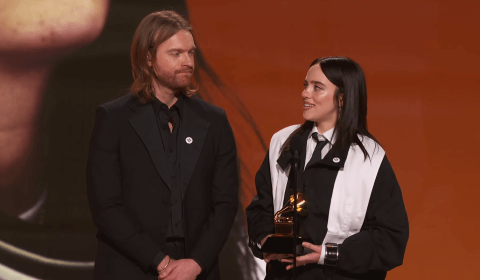The belief that another person will complete us means that many people are settling for the bare minimum in relationships, rather than taking the time to get to know themselves as an individual. For modern dating to work, we need to recognise the importance of reciprocal communication between partners and an equal distribution of all kinds of labour.
Before the evolution of the internet and international travel meant that you could fall in love with someone from the other side of the world, it wasn’t uncommon for people to end up marrying someone living locally, or maybe the next town over if they were feeling adventurous.
We see this in the charming familiarity of the boy/girl-next-door trope, romanticised by Taylor Swift and in films like The Notebook.
The other, not-so fairy-tale-esque, notion that this evinces, however, is the expectation that you’ll settle – that you’ll put up with less-than attractive qualities to avoid being alone or because you don’t want to endeavour to find someone else to build a life with.
@thepsychopomp Never Forget It. 🧩 #jigsawstory #thetruthhurtssometimes #neversettleforless #danielsloss ♬ JIGSAW – Yung Pager
Fitting the boy/girl-next-door into your jigsaw
As comedian Daniel Sloss posits in the Jigsaw Analogy, everyone’s life is like their own personal jigsaw but we’ve each lost the box, so we’re all just confidently guessing what it’s supposed to look like.
The border is made up of your family and friends, then you squeeze in a job somewhere and some time for yourself.
The final middle piece is reserved for a partner, who comes out of nowhere and makes you feel whole.
The obvious issue with this is that it promotes the belief that ‘if we’re not with someone, we’re incomplete.’ This is repeatedly pushed onto us by our relationship-orientated society, in which divorce is largely taboo and being single is ‘wrong.’
As a result, in our desperation to finish the puzzle, we cram in a partner-piece that doesn’t quite fit, simply to have that space filled and so we don’t have to accept that we shouldn’t have to change who we are to find love and that they too have a deep and complex jigsaw to piece together.
‘My generation has become so obsessed with starting the rest of their lives that they are willing to give up the one they’re living,’ says Sloss. ‘We have romanticised the idea of romance and it is cancerous. People are more in love with the idea of love than the person that they’re with.’
Given the ‘high-school sweetheart’ cliche didn’t materialise out of thin air, this does sometimes work out great for people in terms of their romantic attachments.
But as Sloss adds, ‘it’s not impossible to find love,’ just that with 90% of relationships that begin under age 30 breaking up, ‘you have not.’
@julieandcorey the confusion 🤣🤣 #trend #prank ♬ original sound – Julie B & Corey
The bare minimum
Maybe they don’t hit you. Maybe you’re ‘allowed’ to spend time with your friends. Maybe they help you co-parent. Maybe they don’t leave all the housework up to you. Maybe they even organise a date-night once in a while or finally take the reins and plan the holiday your both going on.
But how many older couples do you know who are still completely enamoured with one another?
Who’s found their ‘person’ and whose relationship continues encouraging them to grow, to have new experiences and build a life with the person they loved when they were 16?
The likelihood is that you’ve spoken to people who’ve answered ‘yeah, but they argue all the time’ when asked if their parents are still together or perhaps, like me, you’re a child of divorce.
It’s almost as though the imposition of an inherently patriarchal (and eternally-intended) institution onto the connection between human beings who are perpetually growing and changing is fundamentally flawed.
@cordelia.spresser #fyp #boyfriends ♬ i love you all – ☦︎
The infamous man-child
If you’ve embarked on your own romantic escapades, it’s possible that you’ve experienced having to mother a man-child who genuinely believes he’s contributing as much to the relationship as you are.




















